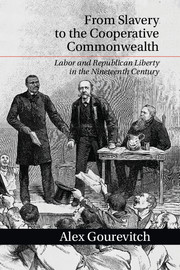Book contents
Conclusion
“The Freedom Yet to Come”
Published online by Cambridge University Press: 05 December 2014
Summary
It is easy to be seduced by historical distance. We might think that the labor republicans are a fascinating and inspiring group, but that their concerns are hardly ours. After all, at least in industrial countries, bosses no longer pay in scrip and pasteboard tickets, courts do not place entire towns under quasi-martial law, labor leaders do not get assassinated nor tent-cities of strikers mowed down by machine guns. States do not send tanks to occupy labor-controlled cities; in fact, the law recognizes labor’s right to organize and to strike. What’s more, the abject poverty of tenement dwellers and sugar cane cutters is (almost) entirely a thing of the past. Labor laws, welfare benefits, modern technology, and cheaper goods all mean that even those who live in poverty have access to much more of life’s necessities, not to mention many luxuries, than workers of the late nineteenth century. Surely we have a right to some sense of moral superiority, to feeling that we do not live as they did.
Work and Domination Today
Of course, even if there is this great historical gap separating us from them, and even if we are entitled to some sense of social progress, we can still find ways to learn from labor republicans. Quentin Skinner argues powerfully that the task of historical reconstruction is “archeological.” We recover lost ways of thinking so as to denaturalize the present:
[T]he intellectual historian can help us to appreciate how far the values embodied in our present way of life, and our present ways of thinking about those values, reflect a series of choices made at different times between different possible worlds. This awareness can help to liberate us from the grip of any one hegemonal account of those values.
- Type
- Chapter
- Information
- From Slavery to the Cooperative CommonwealthLabor and Republican Liberty in the Nineteenth Century, pp. 174 - 190Publisher: Cambridge University PressPrint publication year: 2014



